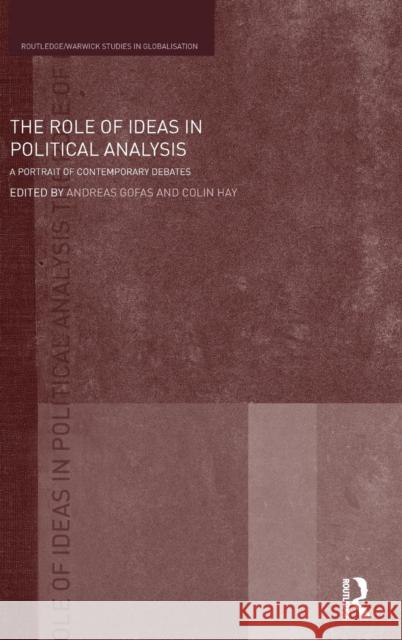The Role of Ideas in Political Analysis: A Portrait of Contemporary Debates » książka
The Role of Ideas in Political Analysis: A Portrait of Contemporary Debates
ISBN-13: 9780415391566 / Angielski / Twarda / 2009 / 224 str.
The Role of Ideas in Political Analysis: A Portrait of Contemporary Debates
ISBN-13: 9780415391566 / Angielski / Twarda / 2009 / 224 str.
(netto: 683,10 VAT: 5%)
Najniższa cena z 30 dni: 654,86 zł
ok. 30 dni roboczych.
Darmowa dostawa!
Despite the proliferation of ideational accounts in the last decade or so, the debate over the role of ideas remains caught up in a series of disputes over the ontological foundations, epistemological status and practical pay-off of the (re)turn to ideational explanations. It is thus unsurprising that there is still little clarity about just what sort of an approach an ideational approach is and about what it would take to establish the kind of fully-fledged ideational research programme many seem to assume has already been developed. The contributors in this volume address these dilemmas in diverse but engagingly complementary ways. They argue that what plagues most attempts to accord ideas an explanatory role is the persistence of the perennial dualities in political analysis. In aspiring to eschew the current vogue for dualistic polemic, the present volume reveals elements of dualistic thinking in the ideational turn and assesses the impact of the persistence of these perennial dualisms in the attempt to accord ideas an explanatory role.
This is the first volume to provide an overview of the role of ideas in political analysis, and as such offers a much-needed collection for a large number of courses on political analysis, broadly conceived, whilst also making a valuable theoretical and empirical contribution to the existing literature.
The authors make a timely intervention as the discipline of political analysis displays more and more signs of ideational intrusion. Despite the proliferation of ideational accounts in the last decade or so, the debate remains a curious disciplinary movement of essentially contested concepts and obtuse meanings that can be better described as a diverse collection of followers who are neither united in intent, similar in focus or method, nor canonized in terms of theoretical precision. This collection takes stock of this current wave of scholarship, making sense of the ideational movement and infers which of its many strands might prove more useful to political analysis.
By providing a balanced account between theoretical and empirical contributions, The Role of Ideas in Political Analysis fills a gap in the literature and ignites further exploration of theoretical and empirical work on ideational phenomena.











